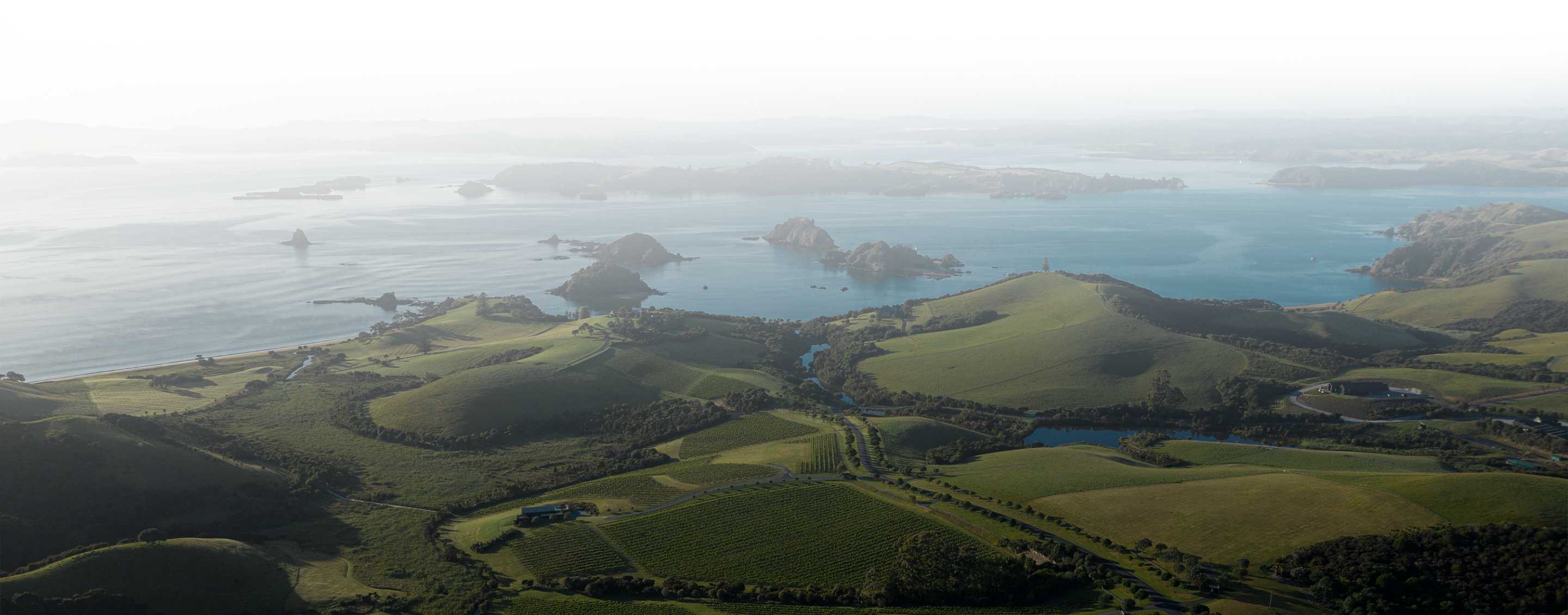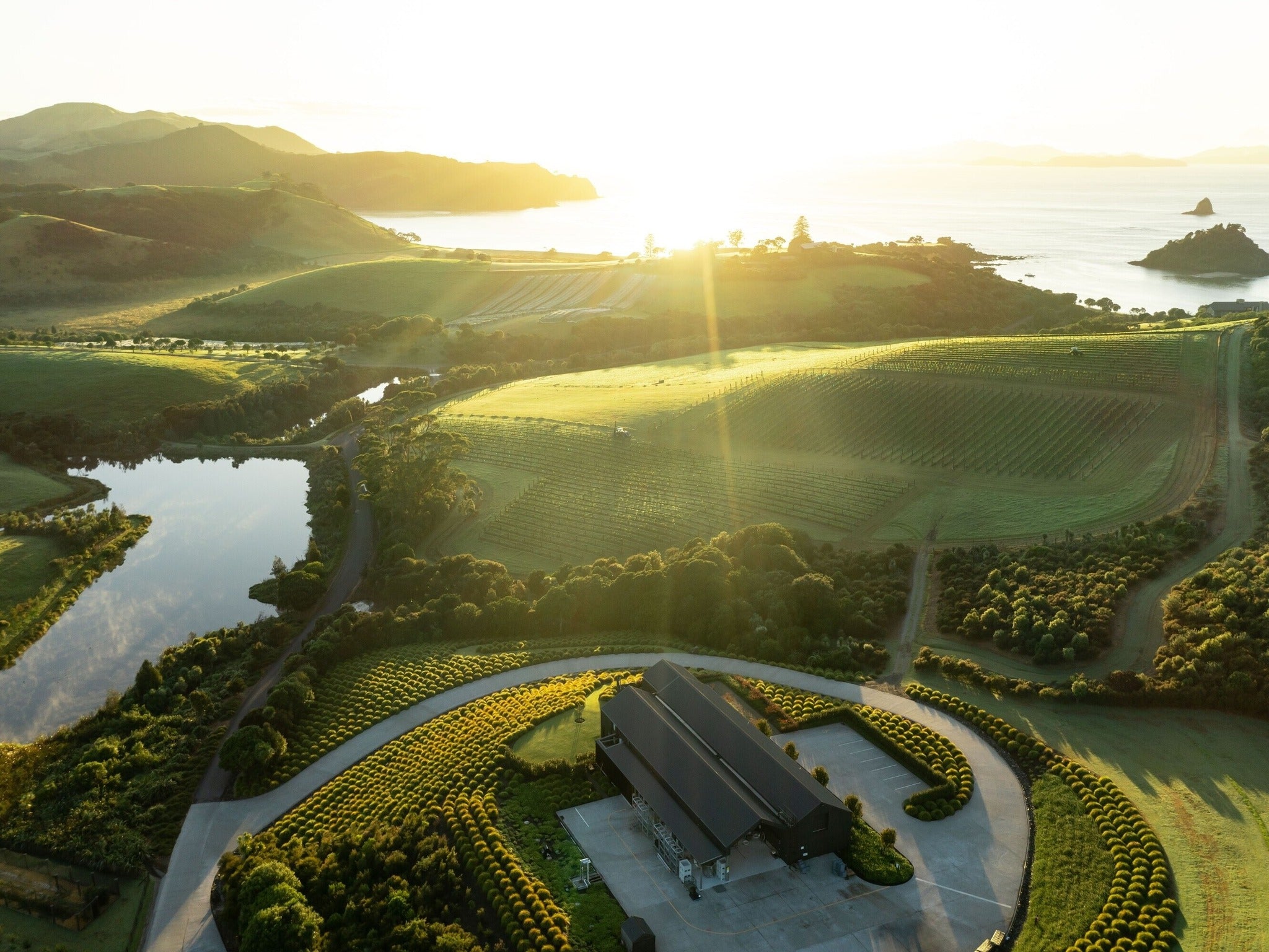
Our Vineyard
Set on a historic peninsula in New Zealand’s stunning Bay of Islands, The Landing is a single-estate vineyard and winery producing beautifully crafted wines with intense flavours and complex mineral characteristics. The Landing’s vineyard extends over 37 rolling coastal acres, bordering forest and wetlands where kiwi and other native birds roam.
The land’s suitability for viticulture was long ago identified by the missionary Reverend Samuel Marsden. He established the first permanent European settlement in New Zealand, near where our vineyard now sits, and planted what are thought to have been New Zealand’s first grapevines nearby in 1819.
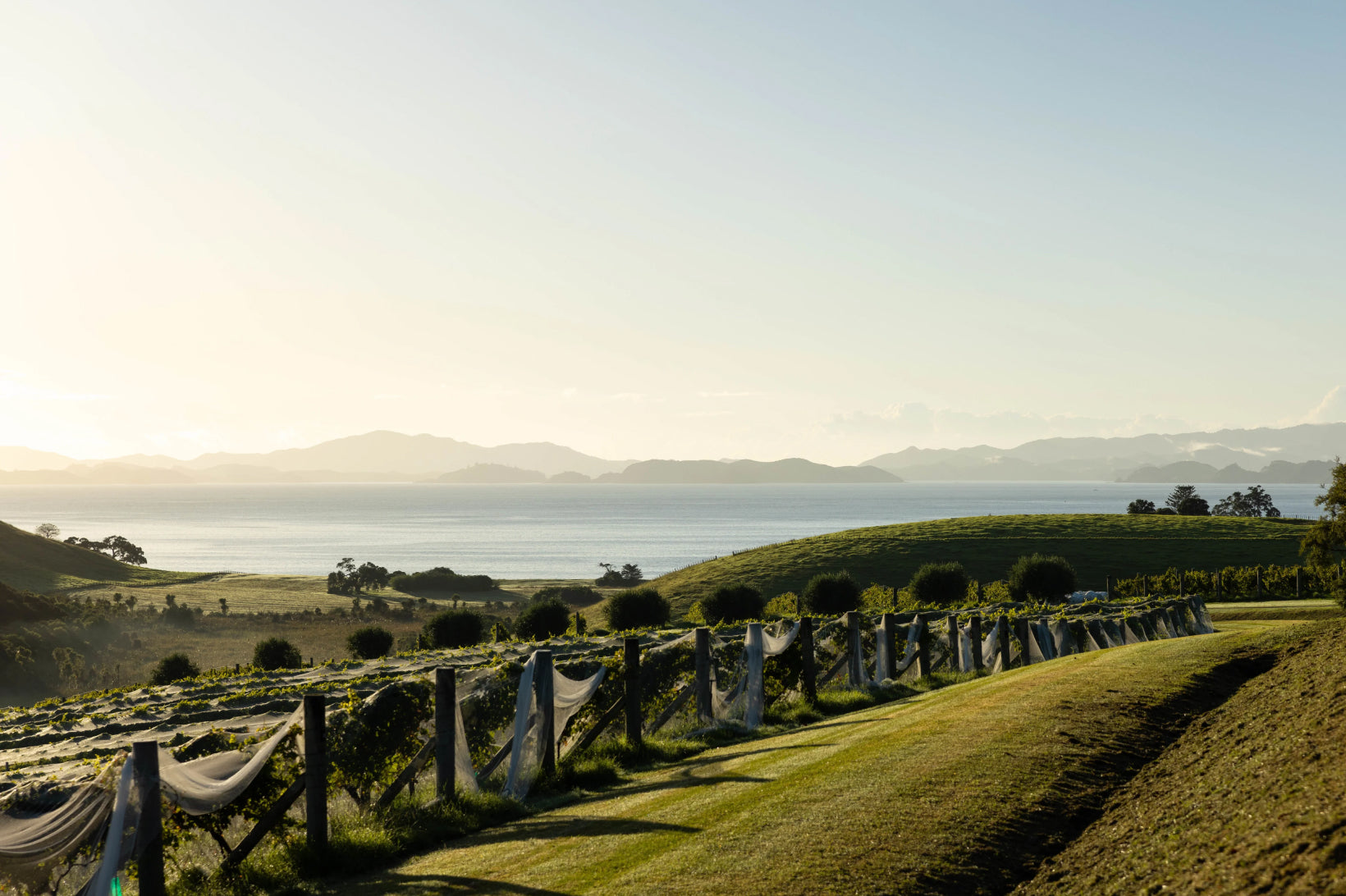
Climate
Over time, the Purerua peninsula’s fertile soils and abundant marine life drew more settlers, and it became a thriving hub of culture and trade for the region. Since the founding of The Landing Wine in 2007, we have honoured the area’s pioneering spirit with our innovative approach and respected the land’s beauty and abundance by nurturing and restoring it through sustainable viticulture.
The warm and exposed costal climate creates an intensity and complexity of flavour, while The Landing’s vineyard is sited in a protective cradle of hills, enjoying a sheltered aspect through the long, balmy days of summer. Sea breezes off Rangihoua Bay keep the vines dry as their roots tunnel deep into the clay and sandstone soils for groundwater, drawing up minerals that give the wines complexity.
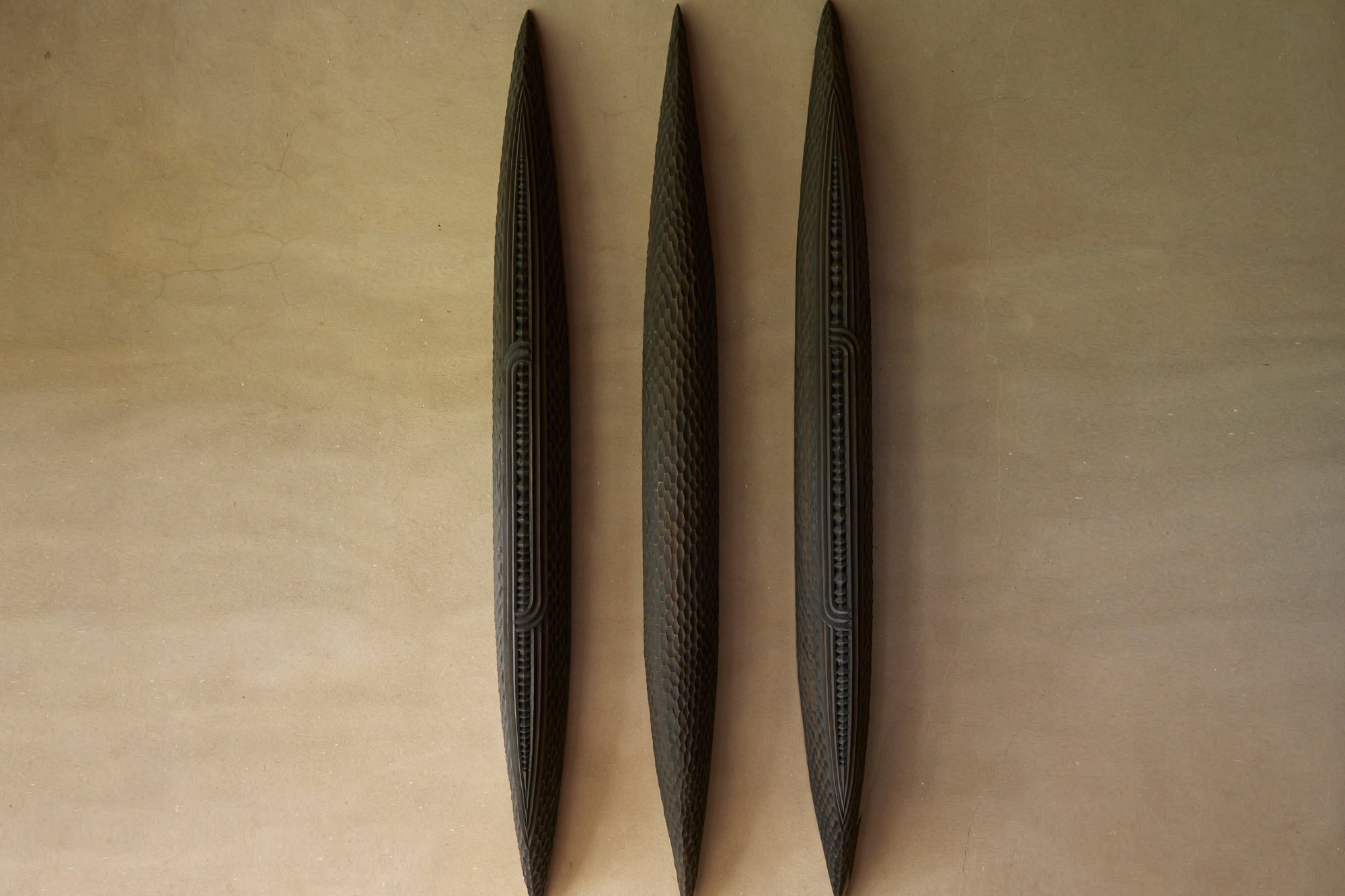
History
The Landing has a viticultural history 200 years in the making. It takes its name from its history as a place where early Polynesian and European immigrants to Aotearoa New Zealand made landfall and built new lives in a new country. And as the home of the first community where European missionaries and indigenous Māori people lived together in New Zealand, The Landing is also thought to be where the country’s original grapevines were planted in the early 1800s.
Today, The Landing Wine brand bears the symbol of three waka (canoes) – honouring the journey of those who have occupied the land in the past.
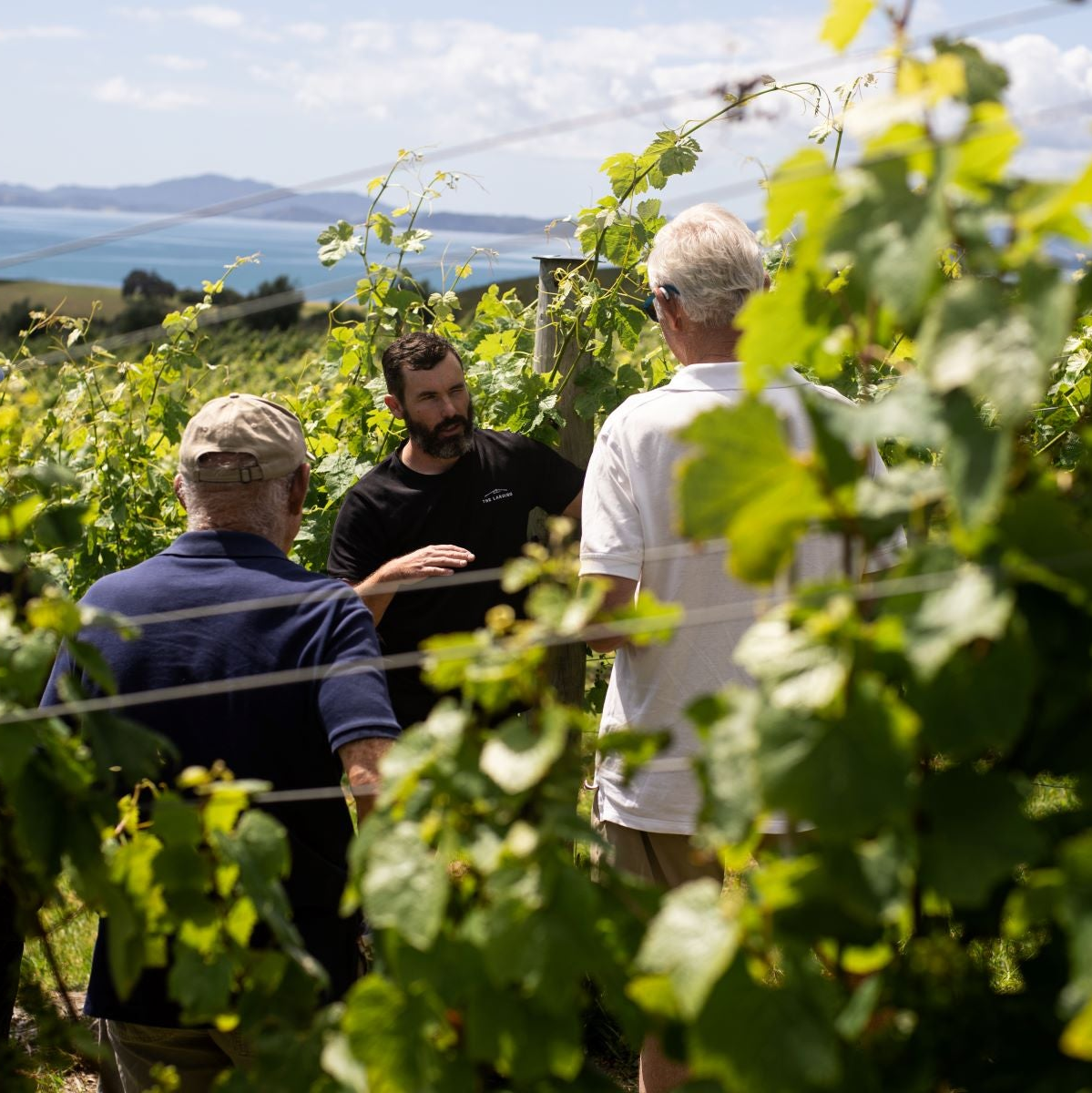
Philosophy
We build relationships through mutual respect. We honour our landscape, our heritage, culture and people in our differences, diversity and common ground.
At The Landing we take care in detail. We constantly question our best, refine the refined and quietly evolve to ensure we are creating an environment where people and nature can thrive.



